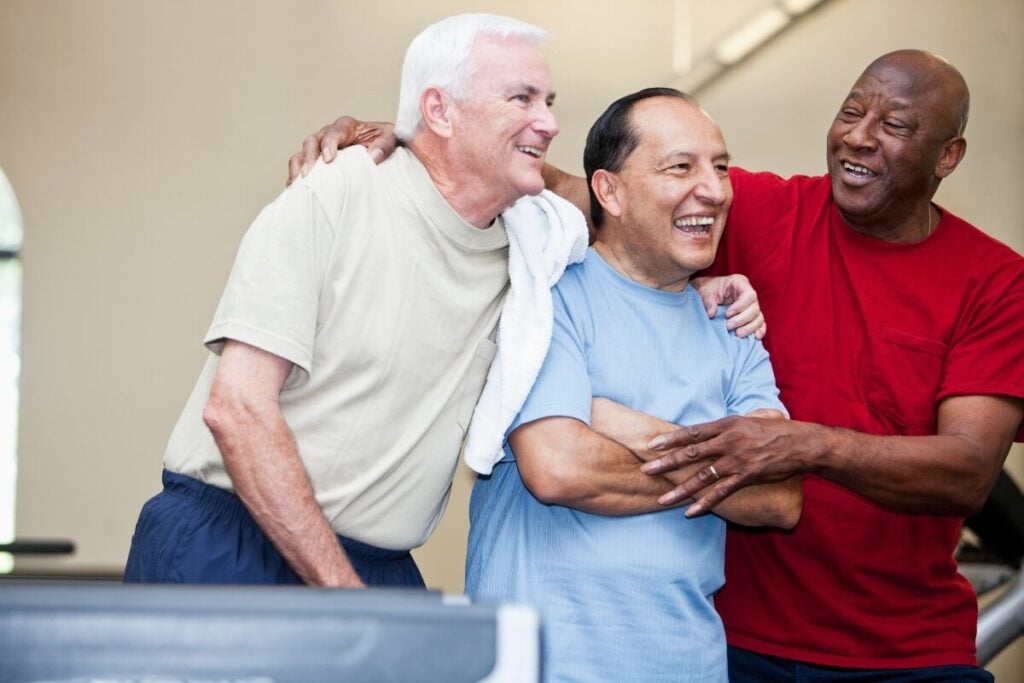Turning 40 can feel like hitting a checkpoint in life. You’ve likely weathered a few storms, gained some wisdom, and maybe even started noticing a few new aches and pains. It’s the perfect time to take charge, prioritize your well-being, and set yourself up for decades of energy, strength, and longevity.
Men often put their health on the back burner—blame it on busy schedules, reluctance to go to the doctor, or simply not knowing where to start. But staying healthy after 40 doesn’t have to be complicated. It just takes a proactive mindset and a little bit of structure.
Why Your 40s Matter for Long-Term Health
Your 40s are a transitional period. Metabolism begins to slow down, muscle mass gradually decreases, and risk factors for chronic conditions—like heart disease, diabetes, and prostate issues—start to rise. But with the right lifestyle and regular check-ins with your doctor, these risks can be managed, and in many cases, prevented.
The Core Pillars of Men’s Health After 40
- Nutrition – Shift toward whole foods, prioritize lean proteins, healthy fats, and cut back on processed carbs and sugars.
- Exercise – Aim for a mix of cardio, strength training, and flexibility. Muscle maintenance becomes crucial.
- Sleep – 7–9 hours a night isn’t optional. Your body needs it for repair and hormone regulation.
- Stress Management – Chronic stress affects heart health, immune function, and mental clarity.
- Connection – Don’t underestimate the power of strong relationships for mental health and longevity.
Health Checklist for Men Over 40
Here’s your go-to guide for the essential health screenings and tests you should be discussing with your doctor:
General Health: Annual Physical Exam
- Frequency: Every year
- Why: Baseline check of blood pressure, heart rate, weight, and overall wellness.
- Note: Discuss any bladder control issues—early symptoms of incontinence can emerge gradually and are often overlooked.
Blood Pressure Screening
- Frequency: Every 1–2 years (annually if borderline or high)
- Why: High blood pressure can be silent but deadly.
- Note: High blood pressure medications (like diuretics) can sometimes contribute to urinary frequency or urgency.
Cholesterol Panel (Lipid Profile)
- Frequency: Every 5 years (more often if high or at risk)
- Why: Assesses risk of heart disease and stroke.
Blood Sugar (Glucose or A1C Test)
- Frequency: Every 3 years (annually if overweight or at risk)
- Why: Detects early signs of diabetes or prediabetes.
- Note: Diabetes is a major risk factor for incontinence due to nerve damage affecting bladder control.
Cancer Screenings Colorectal Cancer (Colonoscopy)
- Frequency: Every 10 years starting at age 45
- Why: Early detection saves lives. There are also stool-based test options.
Prostate Cancer (PSA Test)
- Frequency: Talk to your doctor about risks starting at age 50 (or 45 if high risk)
- Why: Early-stage prostate cancer is highly treatable.
- Note: Treatments for prostate cancer (surgery, radiation) are leading causes of stress urinary incontinence in men.
Skin Check (Dermatologist Visit)
- Frequency: Annually or as needed
- Why: Skin cancer is common and treatable when caught early.
Respiratory & Heart Health EKG (Electrocardiogram)
- Frequency: As recommended, especially with heart symptoms or family history
- Why: Detects abnormal heart rhythms or signs of heart disease
Lung Cancer Screening (Low-dose CT scan)
- Frequency: Annually if you are 50–80, have a 20 pack-year smoking history, and currently smoke or quit within 15 years
- Why: Early detection improves survival.
Bone & Hormonal Health/Testosterone Levels
- Frequency: As needed if symptoms of low T appear (fatigue, low libido, mood changes)
- Why: Testosterone naturally declines, and checking can help guide treatment if needed.
- Note: Low testosterone may be linked to pelvic floor weakness, potentially affecting bladder control.
Bone Density Scan (DEXA)
- Frequency: Starting at 50–60 if risk factors (family history, smoking, steroid use)
- Why: Osteoporosis isn’t just a women’s issue.
Mental & Cognitive Health: Depression/Anxiety Screening
- Frequency: Discuss yearly
- Why: Mental health is just as vital as physical. Don’t tough it out—talk it out.
- Note: Incontinence can increase risk for depression and anxiety—especially if it leads to isolation or embarrassment.
Cognitive Baseline Assessment
- Frequency: Starting at 65 or earlier if symptoms arise
- Why: Establishing a baseline helps detect early signs of cognitive decline.
- Note: Cognitive decline may worsen or mask incontinence symptoms and make management more difficult.

Don’t Overlook Bladder Health: Incontinence Matters Too
As men age, especially after 40, changes in bladder control can catch many by surprise. Urinary incontinence, particularly stress urinary incontinence (SUI)—leakage triggered by coughing, lifting, or exercise—can occur due to weakened pelvic muscles or as a side effect of prostate surgery.
While often overlooked or underreported, incontinence can impact:
- Daily confidence
- Sleep quality
- Sexual health
- Mental well-being
What to do: If you’re noticing leaks or bladder changes, bring it up at your next physical. Many treatments exist—from simple pelvic floor exercises (like Kegels) to surgical options. Early action helps you stay in control.
Pro tip: Pelvic floor exercises aren’t just for women—they can help men significantly, especially after prostate procedures. Add them to your fitness routine just like cardio or strength training
Final Thoughts
Turning 40 doesn’t mean slowing down—it means leveling up. By being proactive, scheduling your checkups, and tuning in to what your body’s telling you, you can stay strong, sharp, and thriving for decades to come.
Healthy Habits to Lock In Now
- Limit alcohol – Keep it moderate.
- Don’t smoke – At all.
- Stay hydrated – It’s basic, but powerful.
- Stay curious – Learn something new. Keep your brain stimulated.
- Move every day – Even if it’s just a walk.
Your health is your foundation. Build it right, and everything else—career, family, adventure—stays solid.
Men’s 40+ Health Checklist – Keep it somewhere visible. And share it with a friend. Because staying healthy isn’t just a personal mission—it’s a team sport.






